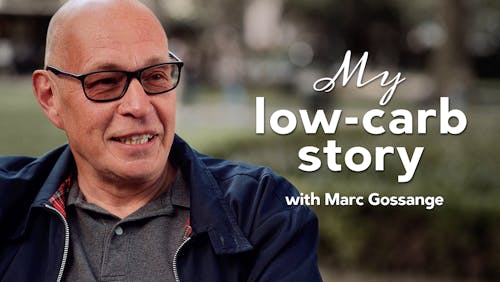Case study supports keto as treatment for Alzheimer’s disease

As we have written before, the rates of Alzheimer’s disease are predicted to sky rocket in the near future with a potential devastating toll on families and medical costs. As a result, pharmaceutical companies are investing billions of dollars to search for a cure. Unfortunately, the result has been one spectacular failure after the next.
Yet a small case series, published books and various anecdotal reports suggest a ketogenic diet may be the most promising tool we have for treating Alzheimer’s disease. A new publication in the journal Alzheimer’s & Dementia adds to the growing body of evidence.
The authors of this case report hypothesize that those with ApoE4 variants (a genetic variant that is known to increase the risk for Alzheimer’s disease) have reduced ability to clear the beta-amyloid plaque from the brain, and they may have reduced ability to transport lipids among the neurons, thus increasing the formation of reactive oxygen species. This combination places them at increased risk for developing Alzheimer’s disease, especially if they have any element of insulin resistance or type 2 diabetes.
With the mounting evidence that Alzheimer’s disease may result from insulin resistance in the brain and inability to properly utilize glucose as fuel, suddenly it makes sense why a ketogenic diet may be the ideal treatment.
The recently published case report highlights the beneficial effects of a keto diet on one individual with type 2 diabetes, Alzheimer’s disease, and the Apo E4 variant. After only 10 weeks on a clinically prescribed ketogenic diet, the subject improved his cognitive assessment score from mild dementia to normal, his HbA1c normalized from 7.8% to 5.5%, and his other metabolic biomarkers likewise improved.
This does not prove that a ketogenic diet will be the magical cure for Alzheimer’s disease, but it certainly is more encouraging than all of the pharmaceutical drug failures. Instead of targeting the amyloid plaques, as many drugs do, we are better off focusing on the metabolic changes that occur in the brain, helping the brain decrease insulin resistance, or even providing the brain with ketones as an alternative fuel source. The mounting anecdotal evidence gives us hope that the cure for a seemingly complex and devastating condition may be as simple as what we choose to eat. Stay tuned to our blog, as we will continue to report on the science as we learn more about the intersection between Alzheimer’s disease and ketogenic diets.
Thanks for reading,
Bret Scher, MD FACC
Earlier
Diabetes is linked with early cognitive dysfunction
Study: Keto promising for mild Alzheimer’s disease
‘Preventing Alzheimer’s is easier than you think’
Guides
The ketogenic diet for Alzheimer’s prevention and treatment: can it help?
Alzheimer’s





























